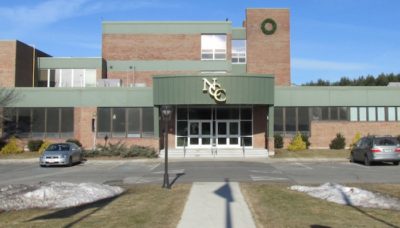By Sarah Downey | The Center Square
New Hampshire’s community college system has asked state lawmakers to allot $30 million in federal aid to help cover tuition for students affected by the COVID-19 economic downturn.
Addressing the Legislative Advisory Committee of the Governor’s Office for Emergency Relief and Recovery last week, Community College System of NH CEO Charles Ansell said many students and their families have lost jobs and need financial assistance to continue their education.
“Our 25,000 students that I just mentioned include those who are looking to change careers, often because they got laid off. And they know we set people up to get good jobs here,” Ansell said, according to a report published by New Hampshire Public Radio.
The system is looking for nearly $30 million from the Coronavirus Aid, Relief, and Economic Security (CARES) Act to help address workforce shortages in critical areas.

Nashua Community College, part of the Community College System of New Hampshire.
“While CCSNH very effectively transitioned to remote instruction, certain lab and hands-on course components still need to be delivered in person,” Ansell said in a news release. “As restrictions begin to lift we will need to bring students back into labs safely so they can complete their programs.”
The requested funding would help outfit labs for more socially distanced learning on campus.
“With small class sizes even in normal times, CCSNH anticipates being well able, with some social distancing modifications, to continue to deliver outstanding education,” Ansell said.
In the coming months, the system also plans to create a “FastForward” initiative meant to help students new to the colleges; among its goals is training for occupations in demand due to the current public health crisis. Another focus is education in fields that will rebound as economic recovery progresses, including information technology, technical trades, business, and manufacturing.
“Unemployment insurance helps meet immediate needs, but doesn’t help people build more secure and stable economic lives,” Ansell said.
“This is the time for New Hampshire to focus on upskilling our workforce, and for individuals this is the time to prepare for jobs that will be more lucrative and stable post-pandemic,” he added. “If we are smart about those efforts now, New Hampshire will be well-positioned once our economy shifts back into growth mode.”


